Tucked away in the highlands of Hà Giang, the small…
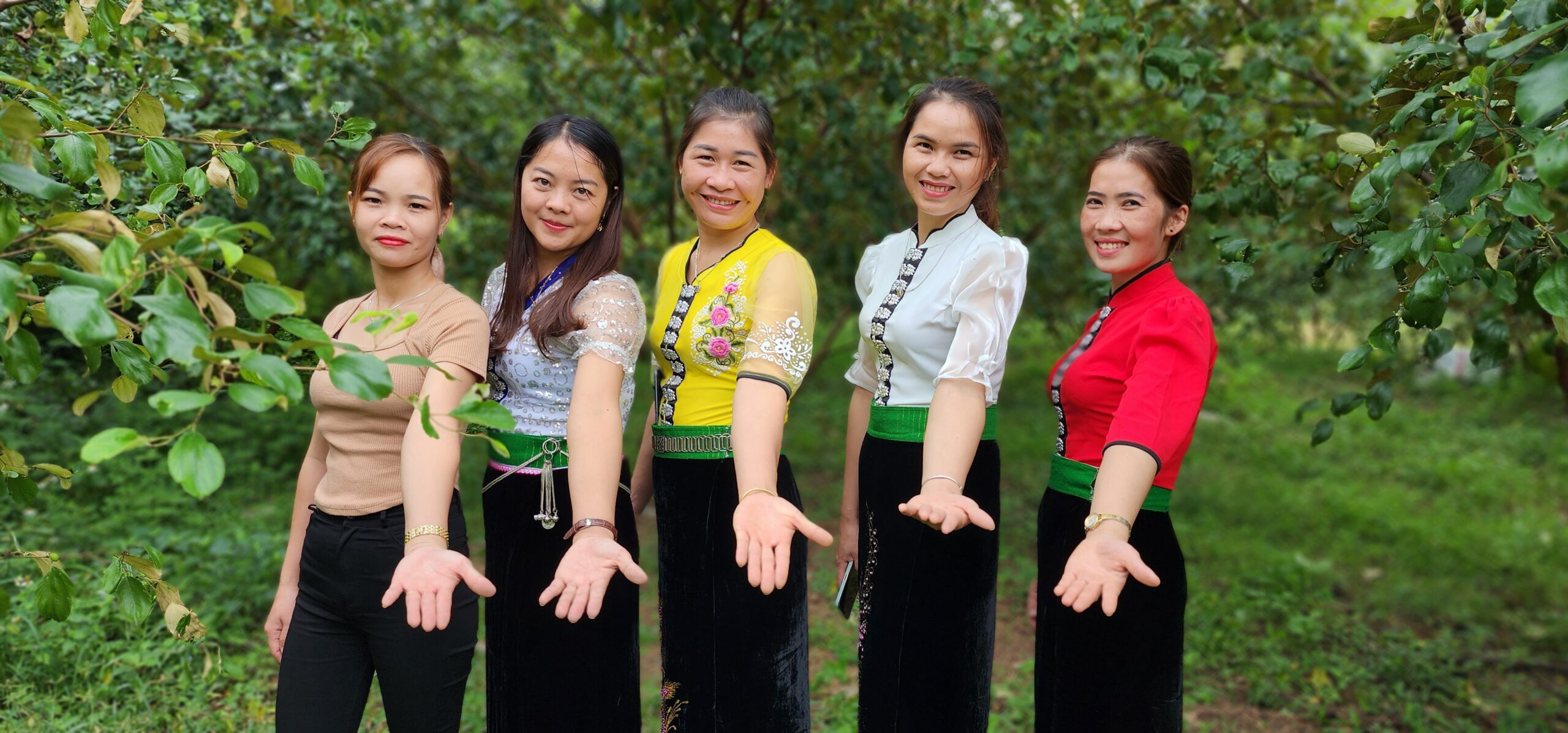
Economic Empowerment for Thai and Hmong Ethnic Women in Son La, Vietnam
In Xuan Nha commune, Van Ho district, Son La province, as well as in many other villages in the mountainous region of Vietnam, women play no less important role than men in agricultural production and other activities, bringing economic benefits to families and communities. However, most local agribusiness models are currently led by men due to gender stereotypes and cultural factors. Xuan Nha women still have limited access to markets and services, have yet to be able to promote their capacities and strengths, have limited roles, and have been positioned in less essential tasks in agricultural production and trade.
With financial support from the Embassy of New Zealand in Vietnam, through the Manaaki New Zealand Alumni Scholarship Fund (MNZAT), Ms. Ngan Le, one New Zealand Alumnus, together with her non-government organization – People and Nature Reconciliation (PanNature), organized a series of training sessions “Promoting the role of indigenous women in farming and eco-friendly agribusiness” from May to October 2022. The targeted beneficiaries are 15 Thai and Hmong women who are members of the Xuan Nha Commune Women’s Union currently participating in an existing models or planning to do business with organic agricultural products in Xuan Nha commune.
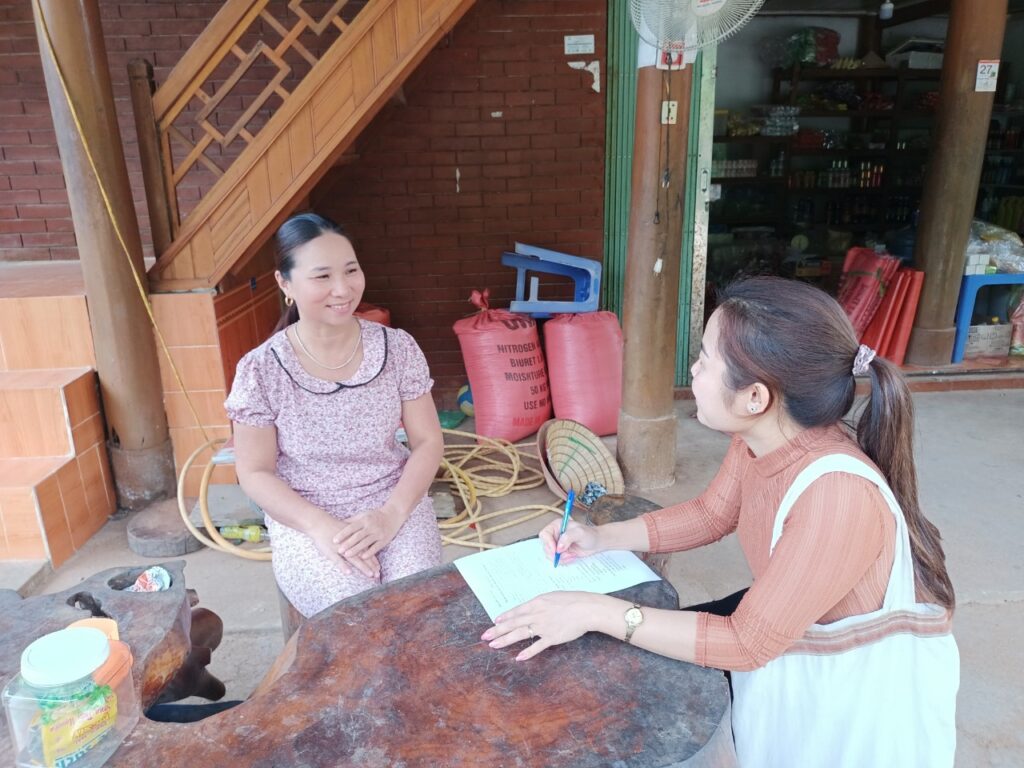
The training series was initiated by inspiring Xuan Nha women about trading organic agricultural products, raising awareness about the agricultural value chain, direct and indirect stakeholders, and information that can be collected through directly consulting local stakeholders to assess local business opportunities. The female participants were given essential tools to assess local agricultural models, look for opportunities to expand existing models, and establish new business models by themselves.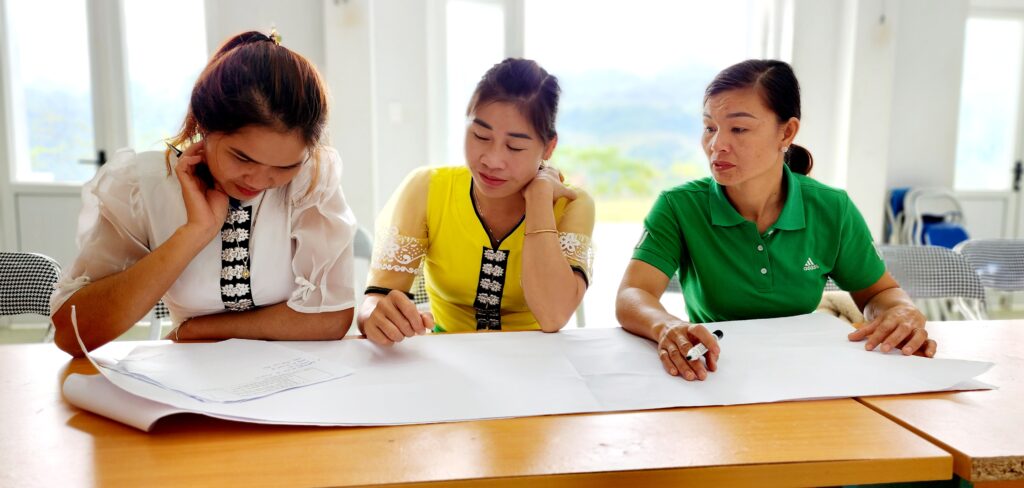
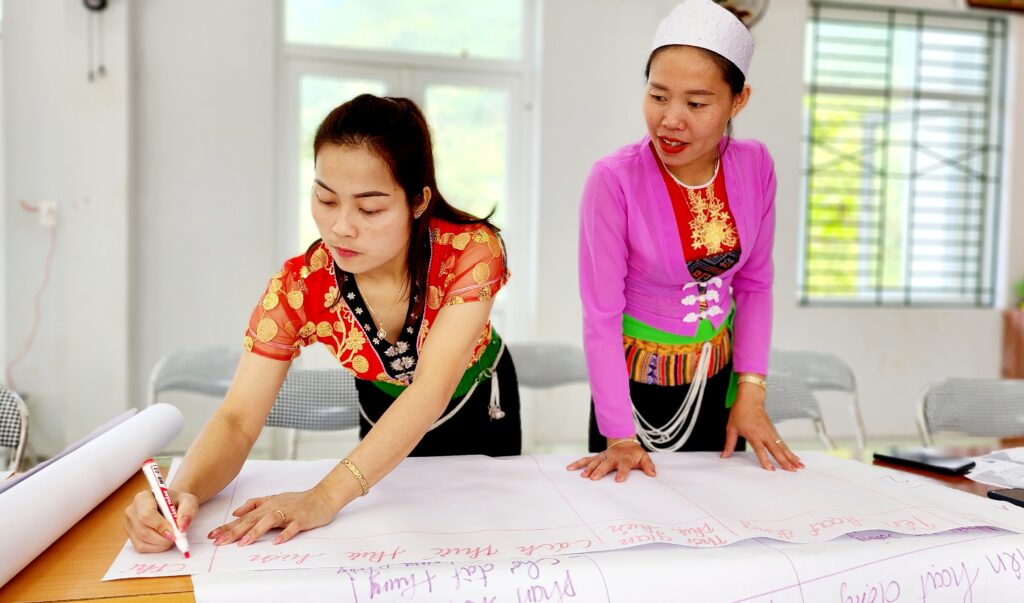
From the tools given, two questionnaires were designed by the women with the support of PanNature staff and used to conduct interviews and collect information from stakeholders in the agricultural value chain by the women themselves. Two groups were divided to assess the difficulties and opportunities for business expansion of the existing cooperative models and potential local agribusiness models.
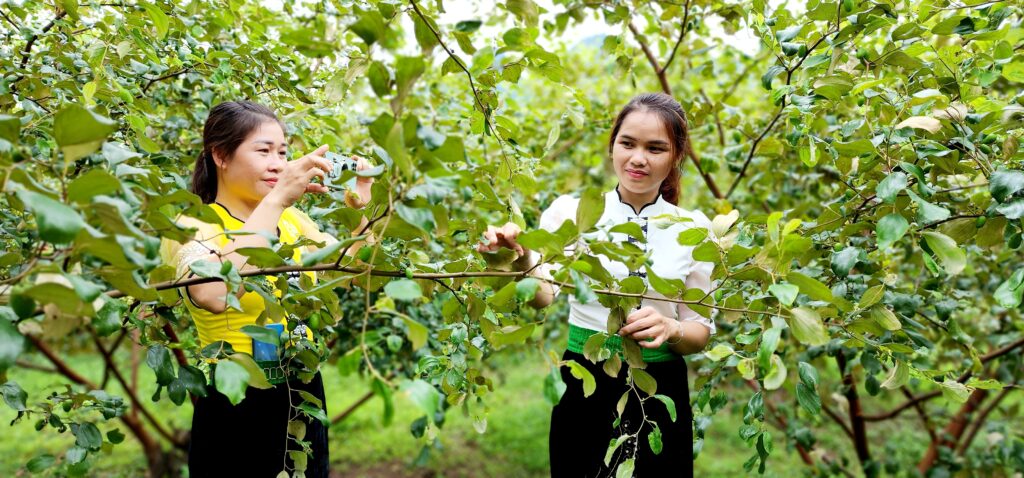
15 female investigators collected information from 40 representatives of households and business units. Accordingly, challenges facing the current agribusiness model are lacking capital, limited market access, management capacity, awareness of the legal system in business, limited productivity, promotion, and marketing skills.
The women’s group also discovered some potential products in Xuan Nha, such as ramie (for the textile and garment industry) and bamboo shoots (for organic food). Local women need investments and financial and technical support to initiate these models.
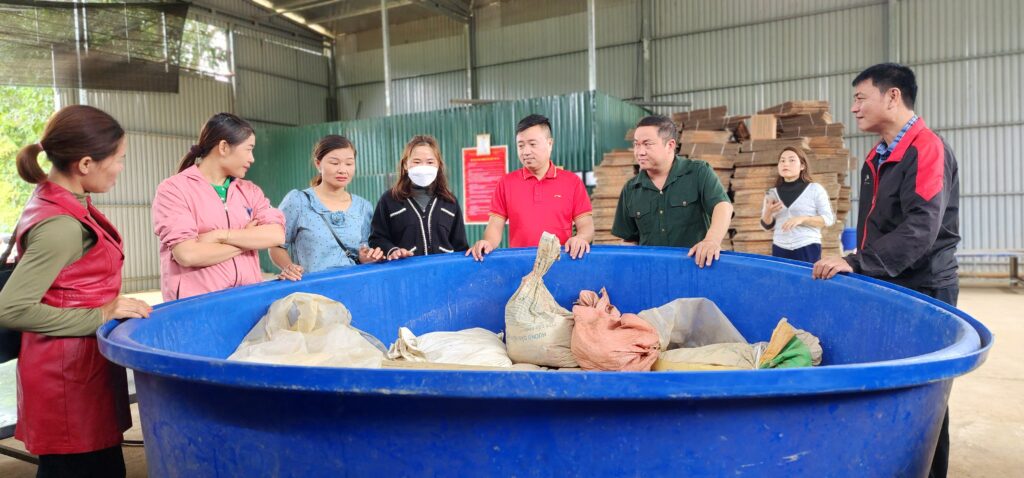
The women summarized the survey’s results in a report, “Assessment of local agricultural models, opportunities and solutions for women to participate in production and business activities.” PanNature supported the female participants in collecting comments from stakeholders for the report, developing practical implementation plans for the business and production activities proposed in the report, and connecting with local and business support programs and policies with the participation of local government representatives and some potential business partners.
More importantly, the workshop also affirms the role of women in local economic development with the government and businesses. Based on the selected products, the women are trained in marketing and communication skills, non-traditional commercial platforms, and how to use smartphones to take product photos and produce attractive promotional content.
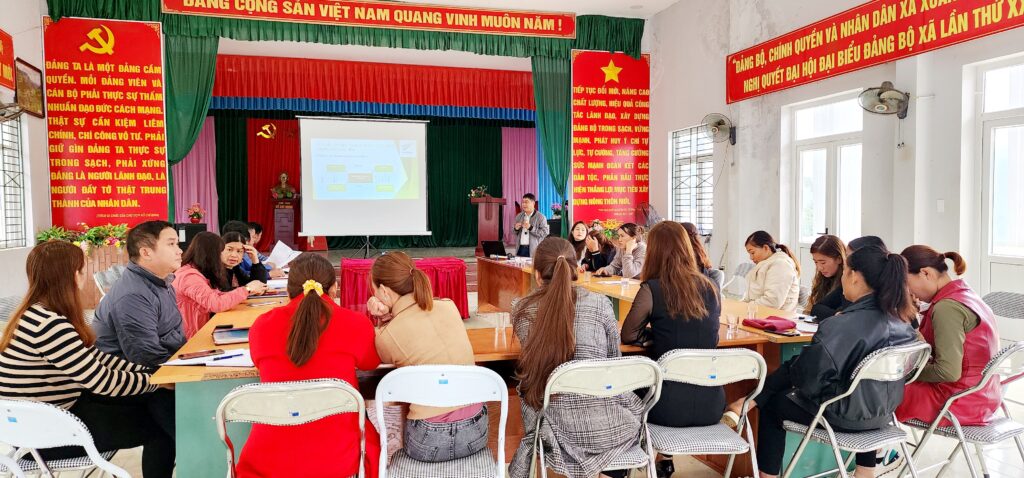
At the end of the project, four new agriculture models led by ethnic women are developed using the market survey results conducted by themselves: (1) pineapple farming; (2) Forest beekeeping; (3) Ramie cultivation; (4) Sichuan pepper harvesting and processing. Moreover, an existing agriculture model with food products from bamboo shoots with current women leadership has worked out a new business plan to improve its efficiency and connect with new business partners. These models have been reported to the local government and received their support and guidance. 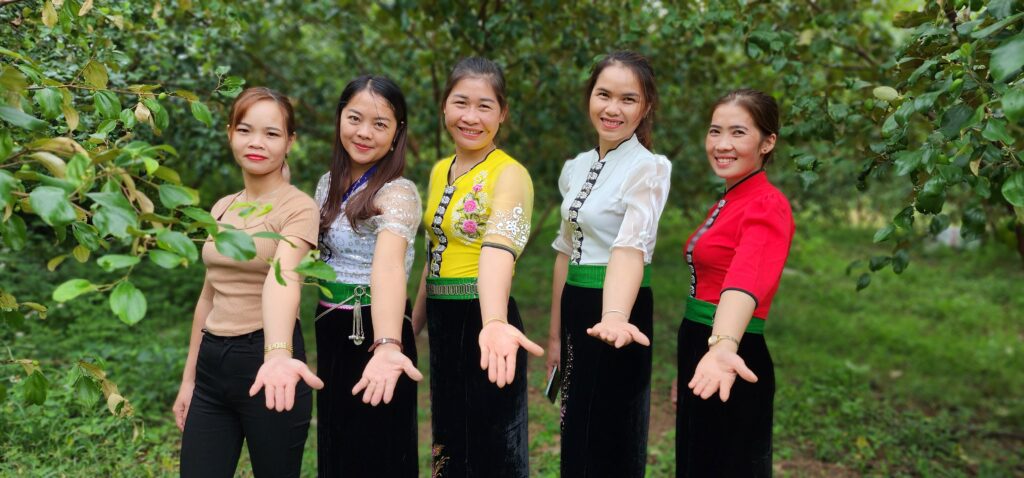
After the project ends, PanNature continues to seek more funding and cooperation opportunities to support these models further, such as connecting with the small grant of the NTFP-EP Platform. Currently, PanNature is having another small project in Xuan Nha commune to promote agricultural waste reduction. The activities will include the members of the commune Women Union, who will continue to receive further capacity building.
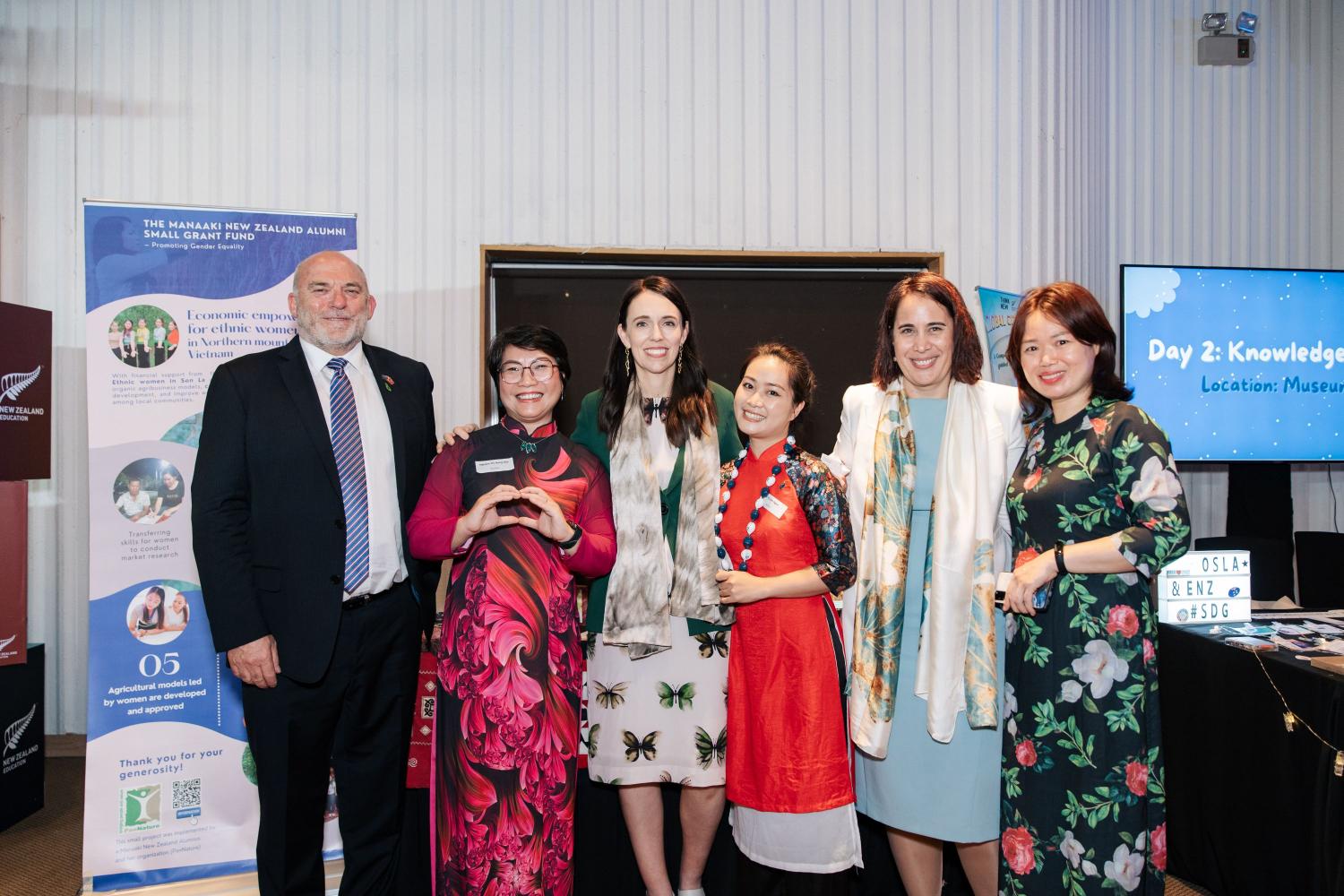
This small project is developed following PanNature’s program of Sustainable Livelihood Development for ethnic mountainous communities in Northwestern Vietnam. Under this program, PanNature established six climate change adaptation farmer groups to transform agricultural production toward environmentally friendly standards, connect with the value chain of high-quality agricultural products, and integrate smart agriculture into the socio-economic development plan of the commune. One of the groups is in Thin village, Xuan Nha commune. The small project supports strengthening the gender angle for this bigger program and promoting gender equity and women empowerment in Xuan Nha commune, promoting local sustainable economic development, and contributing to strengthening friendship between Vietnam and New Zealand. The meaningful initiative has been reported to and impressed the New Zealand Prime Minister during her visit to Vietnam in November.
The project summary video: Economic Empowerment for Ethnic Women in Northern Mountainous Vietnam



